- 收入总额:27103400.95元
- 支出总额:23122739.73元
- 爱心人次:2240次
译者按:2019年5月22日,是一年一度的“国际生物多样性日”。今年的主题与健康有关,著名生物多样性专家Balakrishna Pisupati(法律/环境/发展与治理论坛主席,印度Gokula教育基金会知识体系高级顾问)与中国绿发会分享了他关于生物多样性与健康的灼见,并呼吁在2020后生物多样性框架上要采取实际行动。现将他的《我们的生物多样性,我们的食物,我们的健康》一文翻译如下,作为绿会全球环境治理瞭望之“世界聚焦于中国云南昆明:CBD COP15建言” 系列文章之一(CBCGDF-CBD-COP15#023)发布。
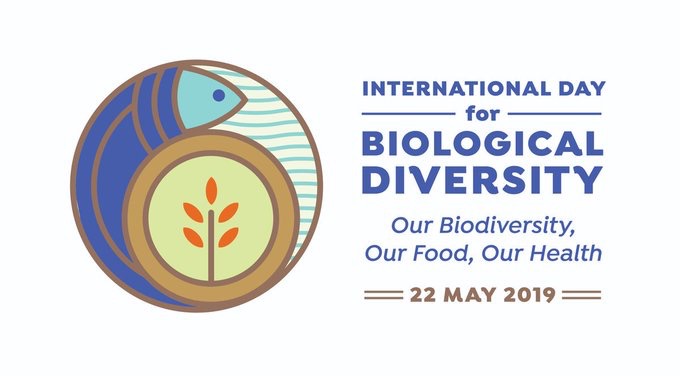
(图源:fao)
按/Linda 翻译/王岩青 编/Angel
Our Biodiversity, Our Food and Our Health
我们的生物多样性,我们的食物,我们的健康
Balakrishna Pisupati
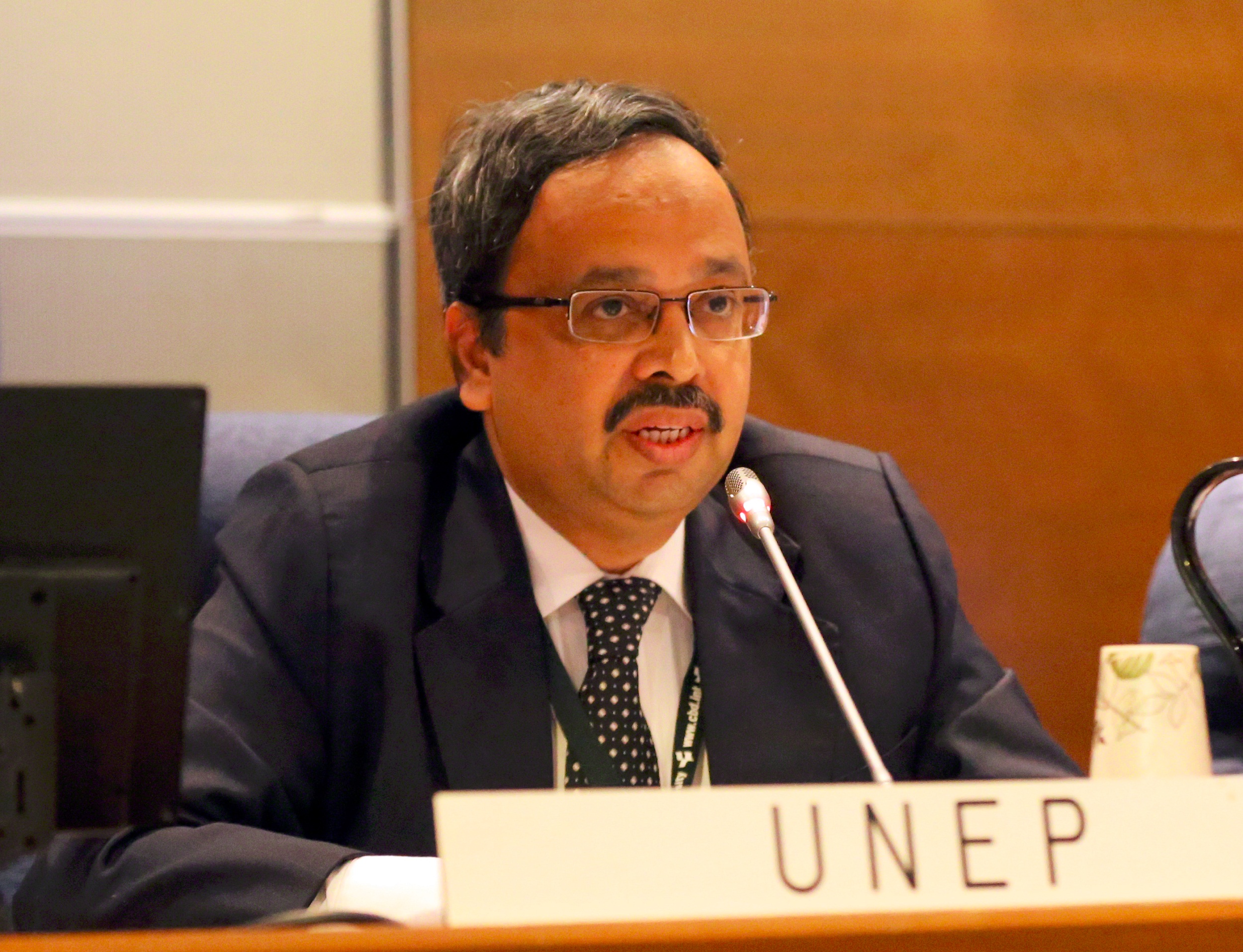
来源/IISD
The above is the theme for 2019 International Day for Biological Diversity.
“我们的生物多样性,我们的食物,我们的健康”是2019年国际生物多样性日的主题。
Every year, 22 May is celebrated as the International Day for Biological Diversity with hundreds of activities around the world to draw attention to the need for protecting the biological resources and ensure the future of this Planet is secure for our children and grandchildren.
每年的5月22日是“国际生物多样性日”。每年的这个时候,世界各地会举办上百场活动,呼吁人们保护生物资源,让我们的子孙享有地球的未来。
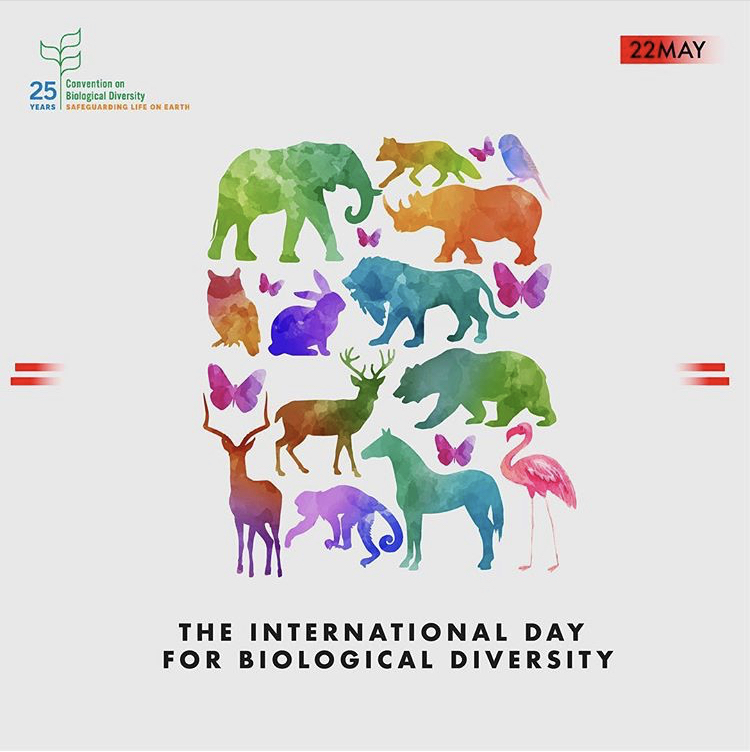
来源/CBD
The focus on health this year is significant. Health is defined by the World Health Organization (WHO) as “a state of complete physical, mental and social well-being and not merely the absence of disease or infirmity”. The status of health has important social, behavioral, economic and environmental determinants. Many aspects of human health are directly or indirectly dependent upon biodiversity, ecosystems and ecosystem functioning.
今年的关注重点是健康。世界卫生组织(WHO)对健康的定义是“身体、心理和社会全面幸福的一种状态,而不是仅是没有疾病或感到不适。”健康状况包含社会、行为、经济和环境重要因素。健康的诸多方面直接或间接与生物多样性、生态系统和生态系统功能相关。
The State of Knowledge Review on Biodiversity and Health jointly published by the Convention on Biological Diversity (CBD) and the World Health Organization (WHO) detail the links between biodiversity, ecosystems and health. According to the report, at a planetary scale, ecosystems and biodiversity play a critical role in determining the state of the Earth System, regulating its material and energy ?ows and its responses to abrupt and gradual change. At a more intimate level, the human microbiota – the symbiotic microbial communities present on our gut, skin, respiratory and urino-genital tracts, contribute to our nutrition, can help regulate our immune system, and prevent infections.
《生物多样性公约》(CBD)和世界卫生组织(WHO)共同发布的《生物多样性和健康知识状况审查》中详述了生物多样性、生态系统与健康三者间的关系。这份报告称,在全球范围内,生态系统和生物多样性在决定地球系统状态、调控物质和能源流向以及应对突发变化中起到关键作用。从更微观的角度来看,人体中存附于内脏、皮肤、呼吸道和泌尿系统等的微生物群落,可以帮助调控人体免疫系统,预防疾病。
Research and development of pharmaceuticals indicate that reliance on biodiversity for discovery of new drugs continue to increase with new antibiotic-based research topping the list. The US Federal Drug Administration (USFDA) estimates that between 1981 and 2010, 75 % of antibacterial drugs developed are based on natural products. More than 500 antibiotics currently in use are derived from soil microorganisms.
药物研究和发展表明,新药对生物多样性的依赖不断增加,新抗生素研究位居榜首。美国食品药品管理局(USFDA)估计,自1981年至2010年间研发的抗生素药物中有75%使用自然产物。目前使用的500多种抗生素是源自土壤微生物。
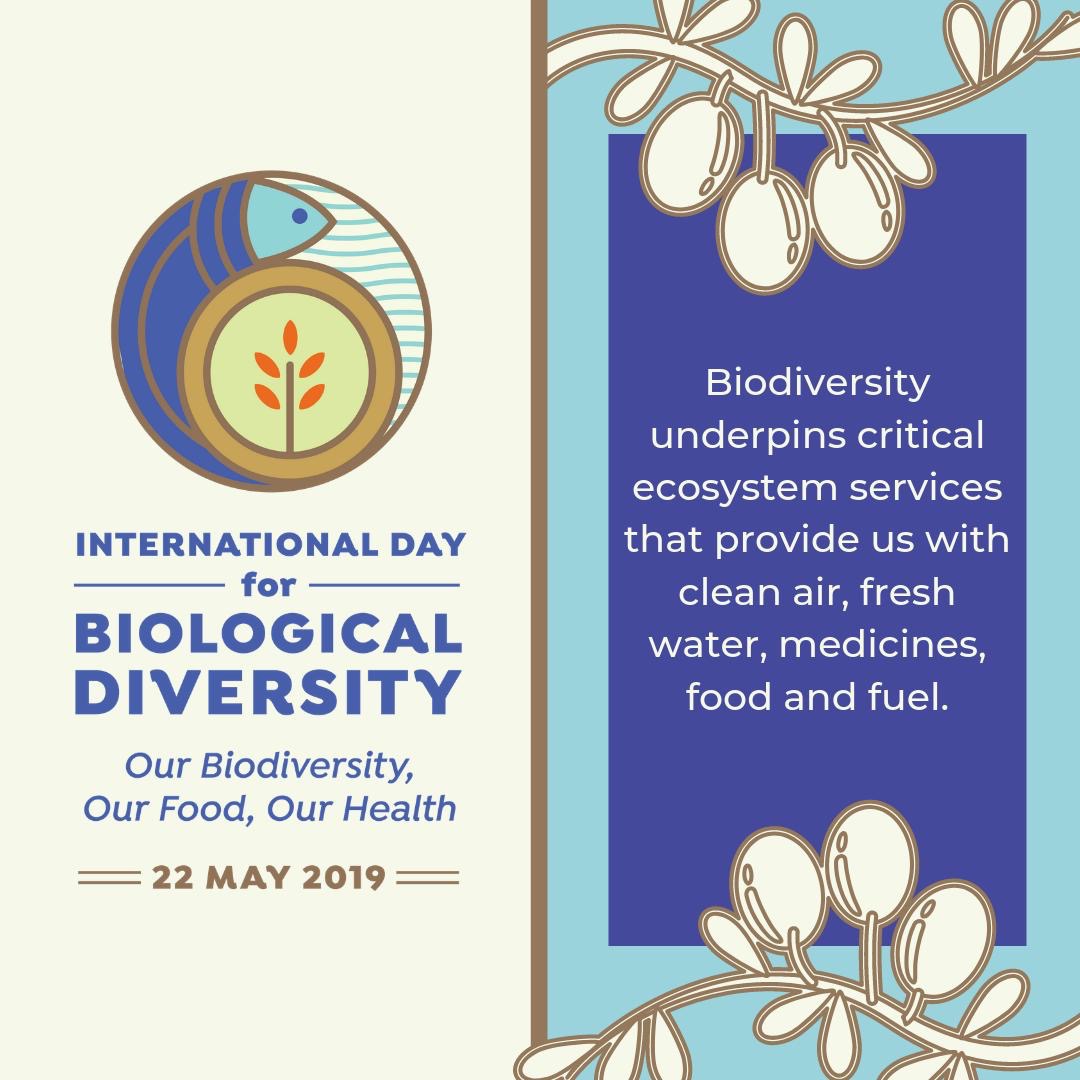
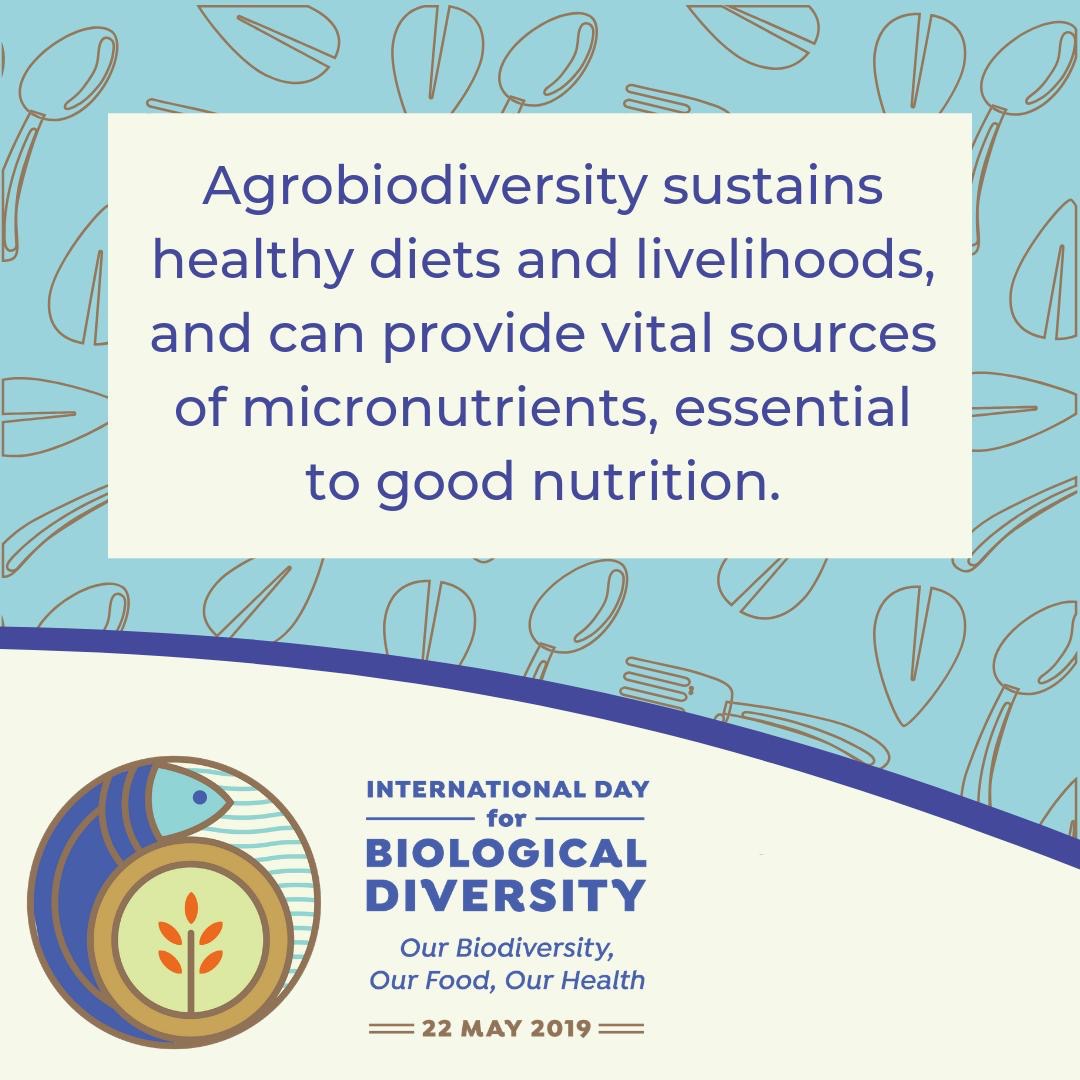
来源/联合国
Biodiversity based research in medicine and physiology helped researchers win many Nobel Prizes, such as the one to Prof. Selman Waksman for his work on Streptomyces griseus to treat tuberculosis, to Prof. Tu Youyou in China for finding a cure for malaria – one of the most devastating tropical diseases – based on artemisin extracted from sweet wormwood. More recently, Prof. Eric Kandel won the Nobel Prize for his work on sea slug based research on memory storage.
许多从事基于生物多样性的药物和生理研究的学者都获得了诺贝尔奖,例如塞尔曼·瓦克斯曼(Selman Waksman)教授利用灰色链霉菌治疗肺结核,中国的屠呦呦教授发现青蒿中的提取物——青蒿素可以治疗疟疾(最难治愈的热带病之一),再到最近的,埃里克·坎德尔(Eric Kandel)教授因利用海蛞蝓在记忆储存方面的研究,获得诺贝尔奖。
It is estimated that the global trade in plants for medicinal purposes reaches a value of over 2.5 billion USD soon and is increasingly driven by industry demand. But, more than one-third of the population in many developing countries do not have access to modern healthcare, and are dependent on traditional medical systems. Therefore there is a need for countries to look at options to integrate health care systems that combine both modern and traditional medical practices.
据估计,全球药用植物贸易总价值有望超过25亿美元,并将日益受工业需求驱动增长。但是,超过三分之一的发展中国家缺少现代医疗卫生服务,依赖传统医药体系。因此,各国须研究不同方案,将现代和传统医疗经验融入医疗保健体系。
As detailed in the CBD-WHO report, health and biodiversity strategies could be developed with the aim of ensuring that the biodiversity and health linkages are widely recognized, valued, and re?ected in national public health and biodiversity strategies, and in the programs, plans, and strategies of other relevant sectors, with the involvement of local communities. The implementation of such strategies could be a joint responsibility of ministries of health, environment, and other relevant ministries responsible for the implementation of environmental health programs and national biodiversity strategies and action plans.
正如在CBD和WHO发布的报告中所述,可以制定健康和生物多样性战略,从而确保生物多样性和健康的关系能够得到广泛认知和重视,并在国家公共医疗和生物多样性战略,以及其他有关部门的项目、计划和战略中得到体现。这些战略的落地实施需由健康部门、环境部门以及其他负责环境健康项目和国家生物多样性战略及行动方案的有关部门共同完成。
传统药物
Though traditional medical practices and systems existed for centuries in countries like China and India that are based on biological resources, the recognition of these systems of medicine to provide health care for millions of local communities and ethnic minorities is still being assessed. The move by the World Health Organization to recognize traditional medicine as a part of the health practice is a welcome one.
尽管在以生物资源为主的国家传统医药方案及体系已有数百年的历史,例如中国和印度,且传统医药体系为当地社区和少数民族的数百万人口提供医疗保健服务,但是对传统医药体系的认识仍在评估中。世界卫生组织承认传统医学可作为医疗实践是对传统医学的认可之举。
China’s interest in promoting traditional medicine has been long standing and is more strongly supported by the recent initiatives such as the Belt and Road Initiative of Government of China that is aiming to create no less than 30 Centers for traditional Chinese medical practice by 2030. India is also pursuing its ambition to promote traditional medical practice and created a full-fledged Ministry for Ayurveda, Yoga and Naturopathy, Unani, Siddah and Homeopathy (AYUSH) to support actions at various levels.
中国一直在努力推广中医,并得到了中国政府“一带一路”倡议的大力支持,计划到2030年至少成立30个中医中心。印度也在大力发展本国传统医药,计划成立一个集阿耶维达疗法、瑜伽和物理疗法、尤那尼医学、Siddah和顺势疗法(AYUSH)为一体的全面部门,支持多方行动。
The contributions of biodiversity and traditional knowledge associated with use of biological resources in health care practice are both critical and important to promote the agenda of the Convention on Biological Diversity (CBD). Health should form an important component of future work of the CBD with the options for an independent work programme on biodiversity and health within the thematic work programmes of the CBD.
生物多样性和在医疗保健领域利用生物资源的传统知识对推进《生物多样性公约》议程具有重要意义。健康应成为《生物多样性公约》今后的重要工作议题,可在《生物多样性公约》框架下开展独立的生物多样性和健康项目。
未来发展/方向
Citizens of most of the developing countries rely on biodiversity and traditional knowledge for their primary and secondary health care needs. Countries need to identify and promote actions for conservation and sustainable use of biodiversity that provides for food, health and nutritional securities of people. Research has shown that managing ecosystems to reduce the risks of infectious diseases, including zoonotic and vector-borne diseases. For example, city like Nairobi in Kenya that had limited incidence of malaria is now prone to malaria attacks due to destruction of forests in and around the city.
大多数发展中国家的公民依靠生物多样性和传统知识来满足最基础和一般的保健需求。各国需要明确并推广为生物多样性保护和可持续利用所采取的行动,为人们提供食物、健康和营养保障。研究表明,管理生态系统可减少疾病感染的风险,包括人畜共患病和媒介传染病。例如,像肯尼亚内罗毕这样曾经很少发生疟疾的城市现在也频发疟疾,原因是城市里及周边森林的减少。
Several of the diet based diseases, including conditions such as obesity, can be well reduced and contained by use of traditional food and promoting dietary diversity. Similarly, biodiversity based interventions are beginning to prove better alternatives to use of antibiotics that is fast triggering anti-microbial resistance.
利用传统食物和促进饮食多样化,可以有效控制饮食方面的疾病,例如肥胖。同样,基于生物多样性的解决方法正逐渐突显其是比使用抗生素更优的方式,后者能快速引发抗药性。
Given this, countries need to develop strategies and policies to deal with conservation, sustainable use of biodiversity as well as promote traditional practices in support of securing local health care.
鉴于此,各国需要发展策略和政策,通过生物多样性保护和可持续利用,以及促进传统医学,支持地方医疗保健。
《生物多样性公约》第十五届缔约方大会(CBD COP15)
Increasing focus on health and biodiversity within the CBD need to be more action-oriented. With China hosting the CBD COP 15 meeting in 2020, the following could be an action agenda for consideration by China (as the incoming Presidency for COP) and all the 195 member states that are Parties to the CBD.
《生物多样性公约》对健康和生物多样性日益关注需要转化为实际行动。2020年,CBD COP15将在中国举办,后续中国(作为下届大会主席国)和大会缔约方,共195个国家可能出台行动议程。
a. Agree on a time-bound, target-oriented work programme on health and biodiversity. This could be to further strengthen the current cross-cutting programme on health and biodiversity
同意就健康和生物多样性达成有时间规定、以目标为导向的工作项目。这可以进一步加强目前健康和生物多样性跨领域项目。
b. Explore options for having a dedicated target on health and biodiversity within the upcoming new global biodiversity targets for 2021-2030.
在2021-2030新的全球生物多样性目标出台之前,探索更加明确的健康和生物多样性目标。
c. Support the initiatives at global, national and local levels on mainstreaming health and biodiversity through a range of programmes, including dedicated funding for such programmes through the next cycle of replenishment of the Global Environment Facility (GEF).
支持全球、国家和地区通过各种项目将健康和生物多样性纳入主流化的倡议,例如,通过GEF的资助为这类项目提供资金。
d. Strengthen focus on role and efficacy of traditional medicine and medical practices that support conservation and sustainable use of biodiversity and associated traditional knowledge.
关注传统医药和医学实践(支持生物多样性保护和可持续利用以及传统知识)的作用和效果。
e. Integrate food, nutrition and health related strategies as a part of strategies to strengthen the work programme on traditional knowledge and develop guidelines on role of traditional knowledge, its contribution to healthcare systems and standardization, using the WHO guidelines as a base.
将食物、营养和健康相关策略纳入战略,以加强传统知识工作项目,并以WHO的指导方针为基础,制定关于传统知识的作用、对医疗体系的贡献和标准化的指导方针
f. Develop a multi-institutional, multi-sectoral platform, with appropriate commitments, to focus on integrative health care practice, and
制定一个多机构、多部门的平台,重点关注综合医疗保健实践;
g. Use the programme of work on health and biodiversity as a key component of CBD’s work on biosafety and access and benefit sharing.
将卫生和生物多样性工作项目作为《生物多样性公约》在生物安全、获取和利益分享工作的重要组成。
Let us hope that the CBD COP 15 will not only renew the focus on the need for integrative approaches to biodiversity, food, nutrition and health but also support actions related to integrative medicine and future human well-being.
让我们期待CBD COP15 不仅将关注对生物多样性、食物、营养和健康的综合方式的必要,还将支持有关整合医学(传统与现代) 和人类福祉的决议。
【作者简介】
Balakrishna Pisupati is the Chairperson of FLEDGE and is Senior Advisor on Knowledge Systems atGokula Education Foundation,India.
Balakrishna Pisupati,法律/环境/发展与治理论坛主席,印度Gokula教育基金会知识体系高级顾问。


